At Anime Expo 2019, I was fortunate enough to attend Spike Chunsoft’s panel on Crystar. Crystar is an RPG developed by Gemdrops and published by Spike Chunsoft in America. The panel itself intrigued me, as director Fuyuki Hayashi stated that the major theme of the game is “catharsis.” Catharsis is a term coined by Greek philosopher Aristotle and means “emotional release.” Have you ever cried, and not even realized why? That is what catharsis is. It can happen when you’re neither happy nor sad; sometimes people just feel so deeply. This game was very personal to me. I am going through a difficult time in my life. Experiencing Catharsis, an emotional release, is so beneficial to not only my but everyone’s emotional health. In fact, while I was studying Clinical Mental Health Counseling I wanted to do research on using video games as a form of therapy. I wanted to use the narrative form of games to induce Catharsis in order to help treat clients. The professors and the academic community laughed at this idea, but, Crystar proves this approach can work. And moreso than that, it’s a touching, beautiful, and endearing game that’s a once-in-a-lifetime experience.
Story
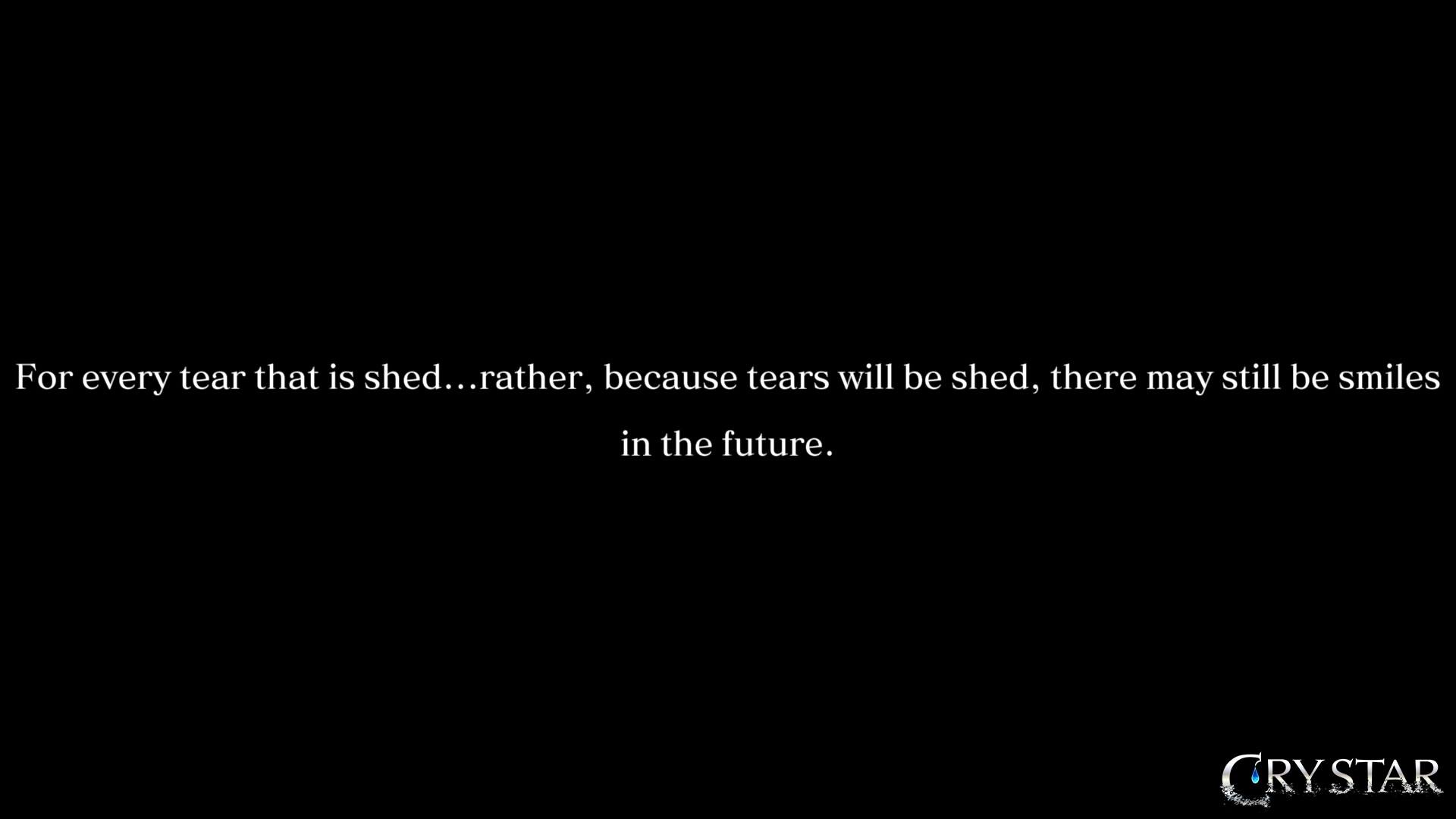
Crystar is a melancholic tale, as indicated by the title, though there are bits of humor which add levity to many situations. If I could use one word to describe the game, it would be cathartic. The game centers around Rei Hatada and Mirai Hatada, two sisters, whose profound bond is suddenly shattered by tragedy. Rei undertakes a quest in Purgatory in order to save Mirai’s soul and hold her hand again. She makes a bargain (editor’s note: this term is used on purpose) with two demons, Mephis and Pheles. Crystar has many references to mythology, mostly Greek mythology. Mephis and Pheles are actually a reference to Mephistopheles, who originally appeared in German folklore as the demon in Faustian legend. Heraclitus is Rei’s guardian and fights by her side throughout the story. Heraclitus was a Greek philosopher who believed the world revolved around conflict. Another guardian, Diogenes, is named after a Greek philosopher as well, who was one of the founders of Cynic philosophy.
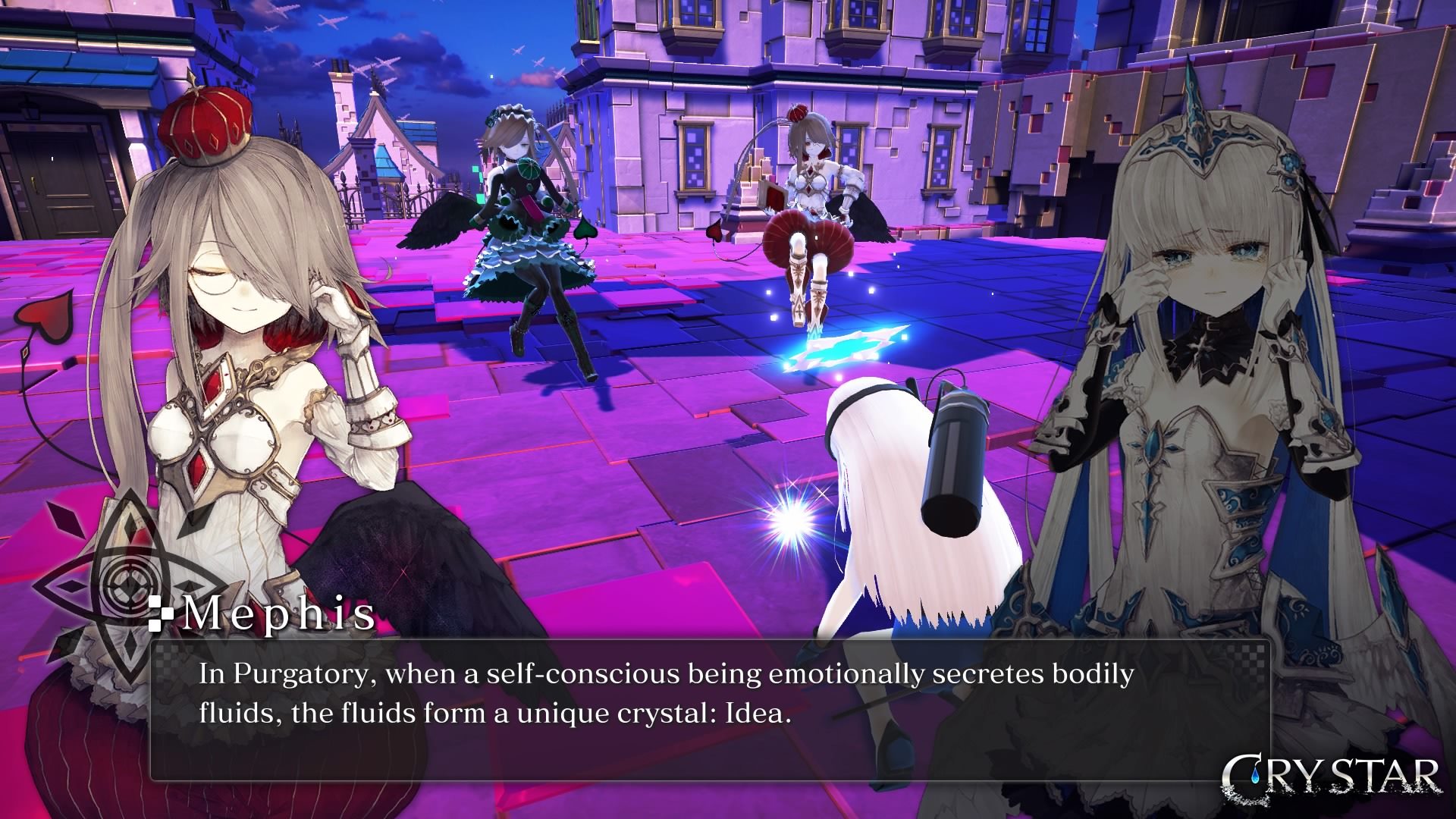
The most important Greek reference in the story though, which is the central theme of the game, is Aristotle’s term Catharsis. Catharsis means “emotional release”, and crying is a pertinent part of the game. Aristotle said that through stories, people experienced catharsis, an “emotional release.” He related this to the Greek Tragedies of the time and believed that people used stories to make sense of their lives. Crystar encapsulates this idea to a tee; I know playing through the game I teared up at times just because I was overrun by emotion, which was the developer’s intent. Aristotle also said that catharsis could take place when one was neither happy nor sad; it’s simply the process of raw emotion exiting the body (or spirit/soul/heart if you want to put it in those terms.)
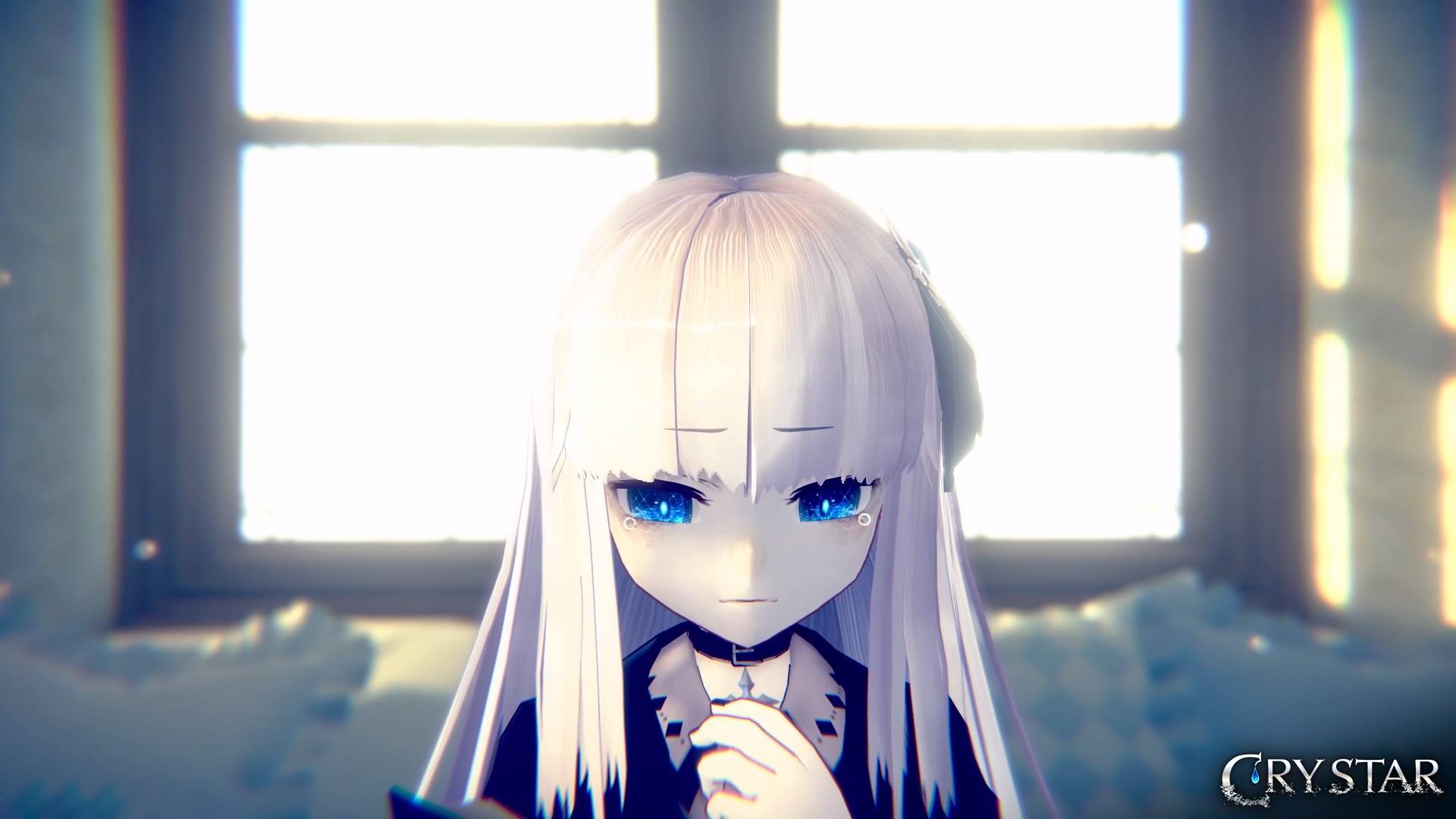
Rei is tasked by Mephis and Pheles, who she makes a Faustian deal with, to kill Revenants and Specters. These beings overrun Purgatory and allegedly disrupt its balance, but they are in fact souls of humans who have lost their will (another reference to philosophy, this time Nietzsche). When Rei vanquishes Revenants with halos, she’s overrun by their emotions. These are called ‘torments’ in the game and can be purified through crying. They translate to Sentiments once purified, which are your equipment. Catharsis isn’t merely the theme of the story; it’s a gameplay mechanic as well.
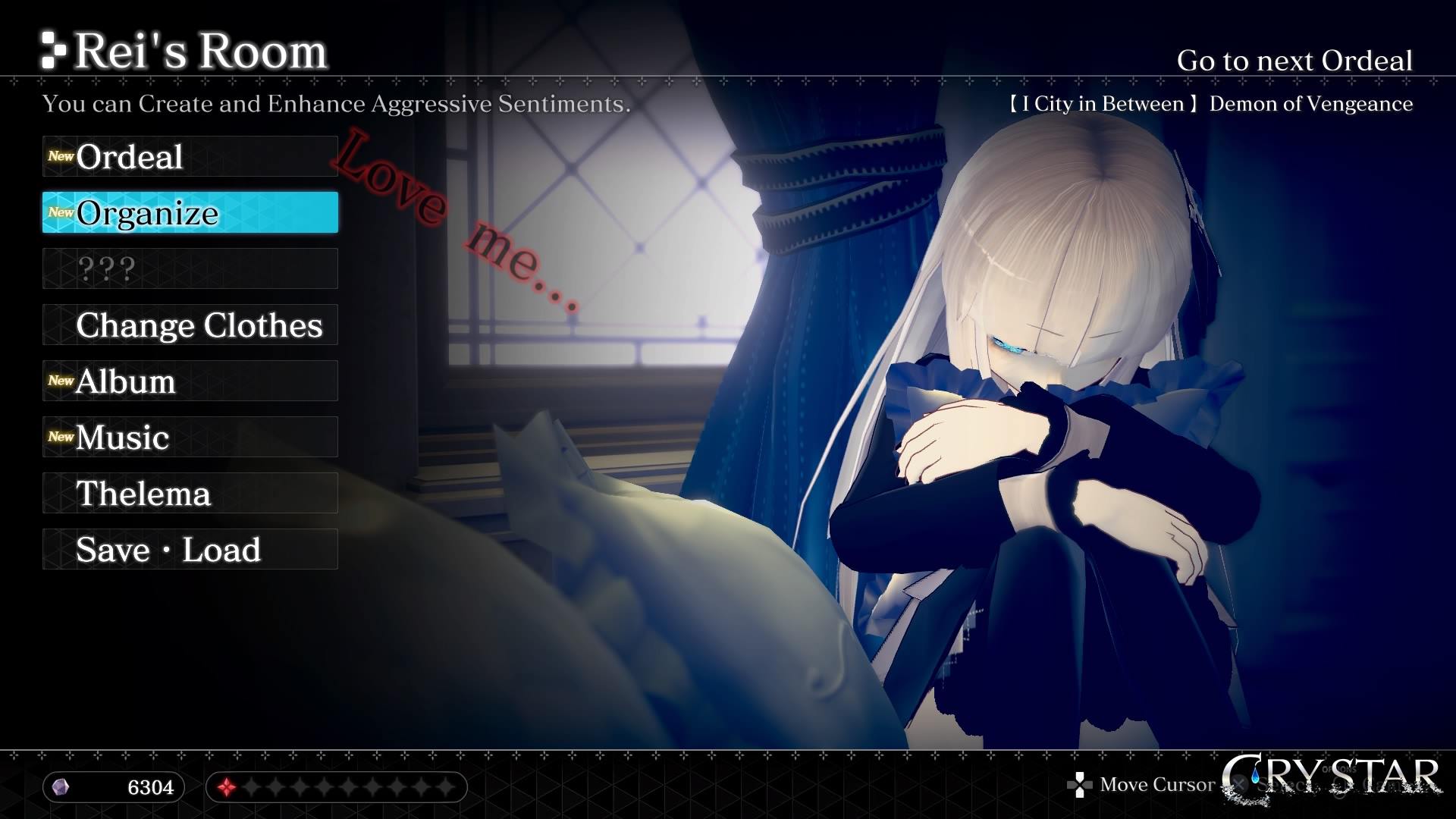
Rei goes through a very personal, spiritual journey throughout the story. She begins as being shy, a shut-in, and unsure of herself. As the game progresses, she goes through unfathomable growth and as the player it is fascinating to see her strength and determination, especially as she is constantly bombarded by Revenant’s Torments.
Gameplay
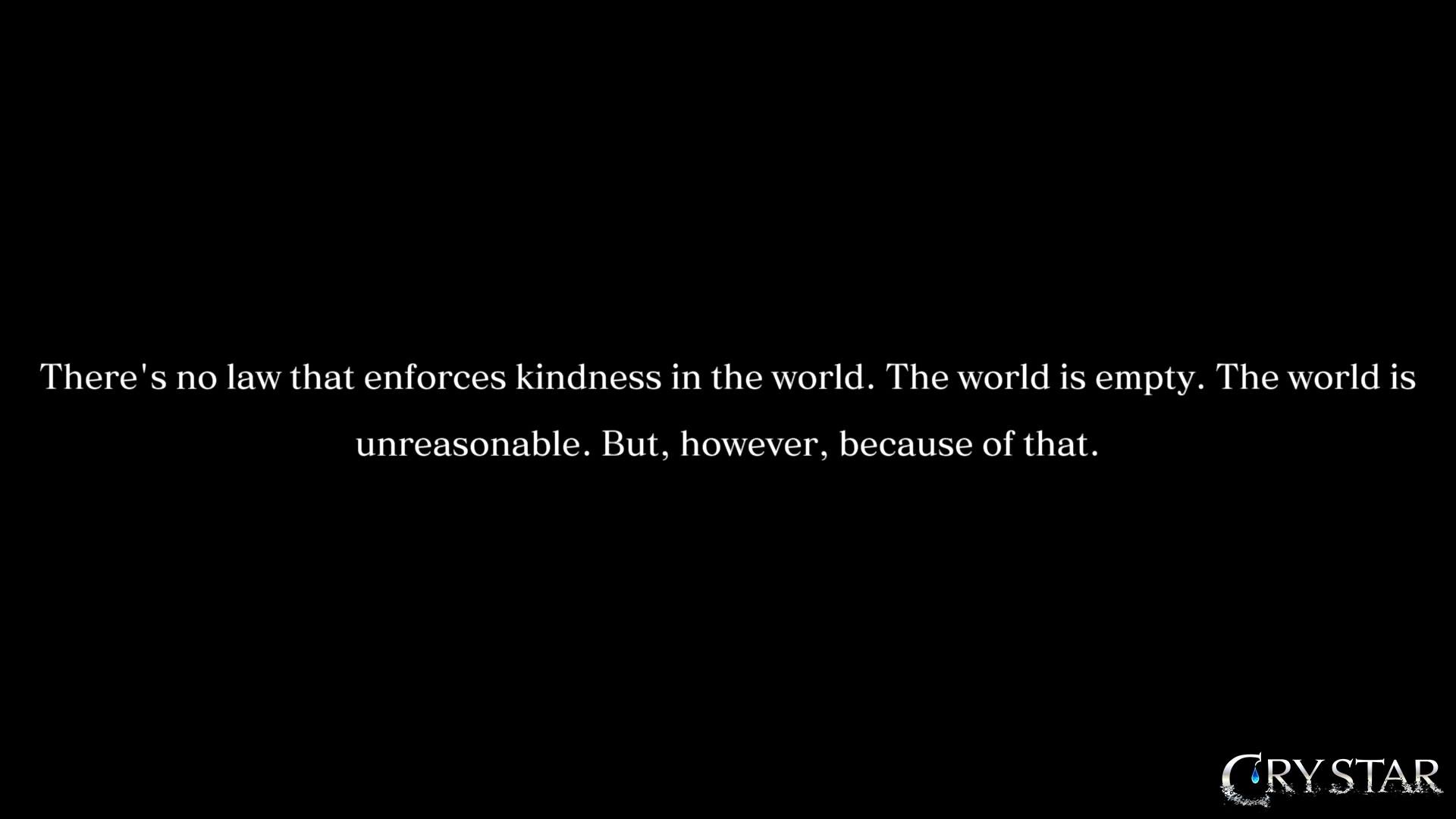
Crystar is an action RPG and the gameplay mechanics are fairly straightforward. Triangle is your strong attack, square is your quick attack, and R1 plus square, triangle, circle, or the X button are your skills. Skills are acquired as you progress through the game. The combat is fluid and you are also able to summon your guardian by building up your tear gauge. Your tear gauge fills up by fighting enemies. It can also build up through crying though. You can use your SP and hold down L1 to fill up your gauge until your SP runs out. When your tear gauge is full, you can summon your guardian…by crying and holding down L1. This gives you a massive power-up and allows you to fight alongside your guardian.
This is another brilliant way of using catharsis not only as a theme of the story, but as a gameplay mechanic. This is unheard of in video games, but I dare say it’s perfect. I don’t say that lightly. And I admit this comes from a different perspective from most, but as someone trained in clinical mental health counseling, this is the game I would want to use to help treat clients. Just thinking of the game, listening to the music, overflows my heart with emotion, which is the point.
The game is divided into Ordeals, which are essentially each stage. Every chapter has about three Ordeals. They’re a little repetitive, but the combat is so much fun. It is somewhat simple, but sometimes that’s best. Not only that, but there are enough variations (your guardian, crying, and Torments) that keep it fresh.
Music and Localization
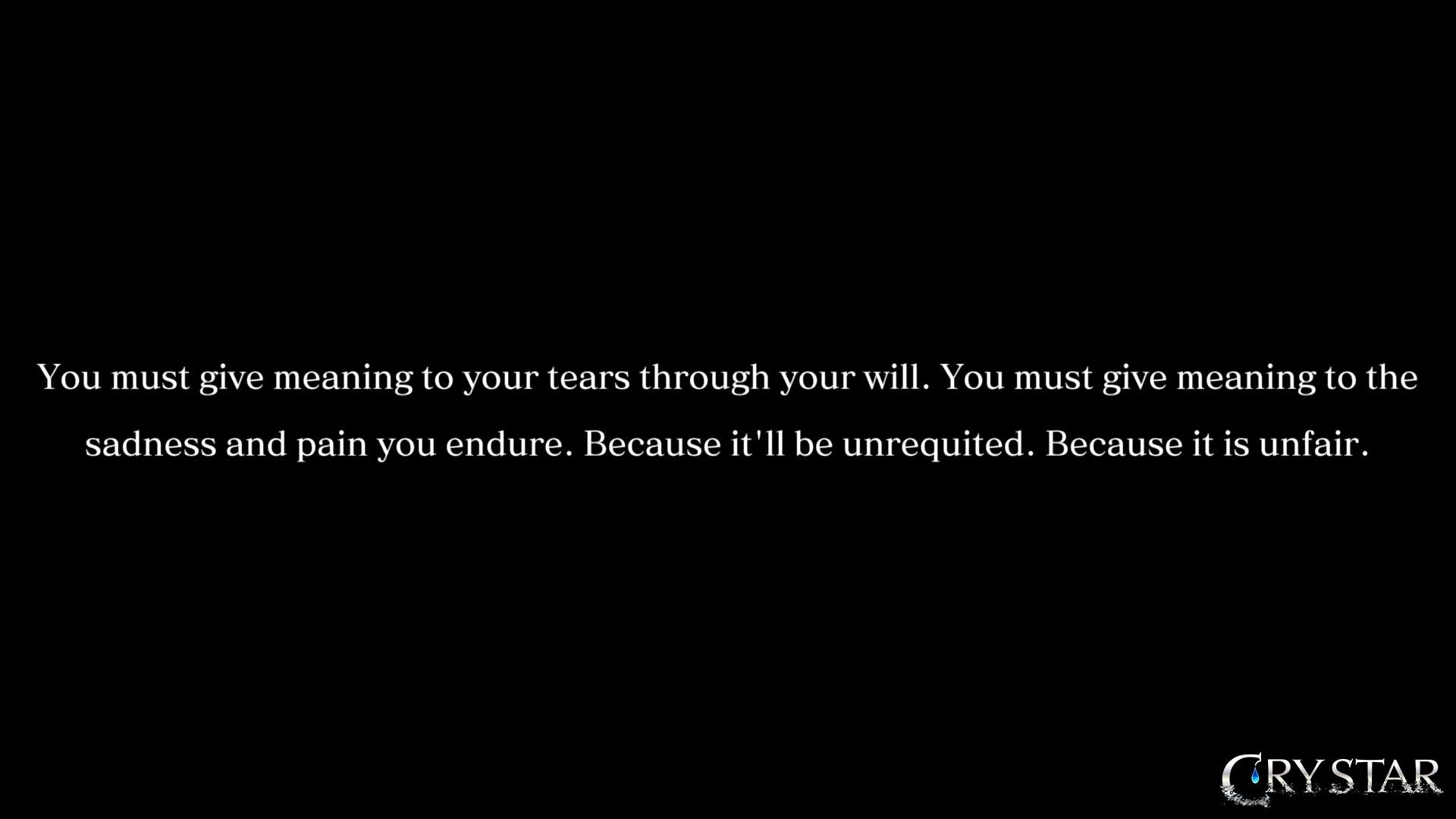
The music in Crystar is…well…cathartic. It fits the game perfectly. It’s melancholic, heavily relying on strings, when it has to be, but it can also be a bit fun in the more lighthearted moments. Spike Chunsoft did an incredible job localizing the game. I never play a game in English because I know enough Japanese to just get by, but the English voice acting is superb. It’s hard to really say there’s one star of the show, as everyone fits their parts perfectly. There are so many references to Greek philosophy (and others as well), and Spike nailed them (this is coming from someone who heavily studied mythology in college), even the subtleties like a reference to Nietzsche that almost no one would pick up.
Unless you are native to Japanese, there’s no reason not to play the game in English.
In a Class of Its Own

Crystar is different than any game I’ve ever played. In fact, it’s the game I’ve always wanted to play, and this doesn’t just come from the perspective of one who initially came from a Clinical Mental Health Counseling background. It’s pure catharsis. You don’t need to be feeling sad in order to experience the deep emotions of Crystar. It simply induces such primal emotions that we all feel, and then, through its gameplay mechanics, gives us an emotional release: Catharsis. It’s beautiful. It’s tragic. And it’s there’s no game like it. I would want to say it’s the best RPG ever made, but I can’t even compare it to other RPGs; maybe because it’s so much more profound than any I’ve ever played? And that says a lot, coming from someone who primarily plays RPGs.
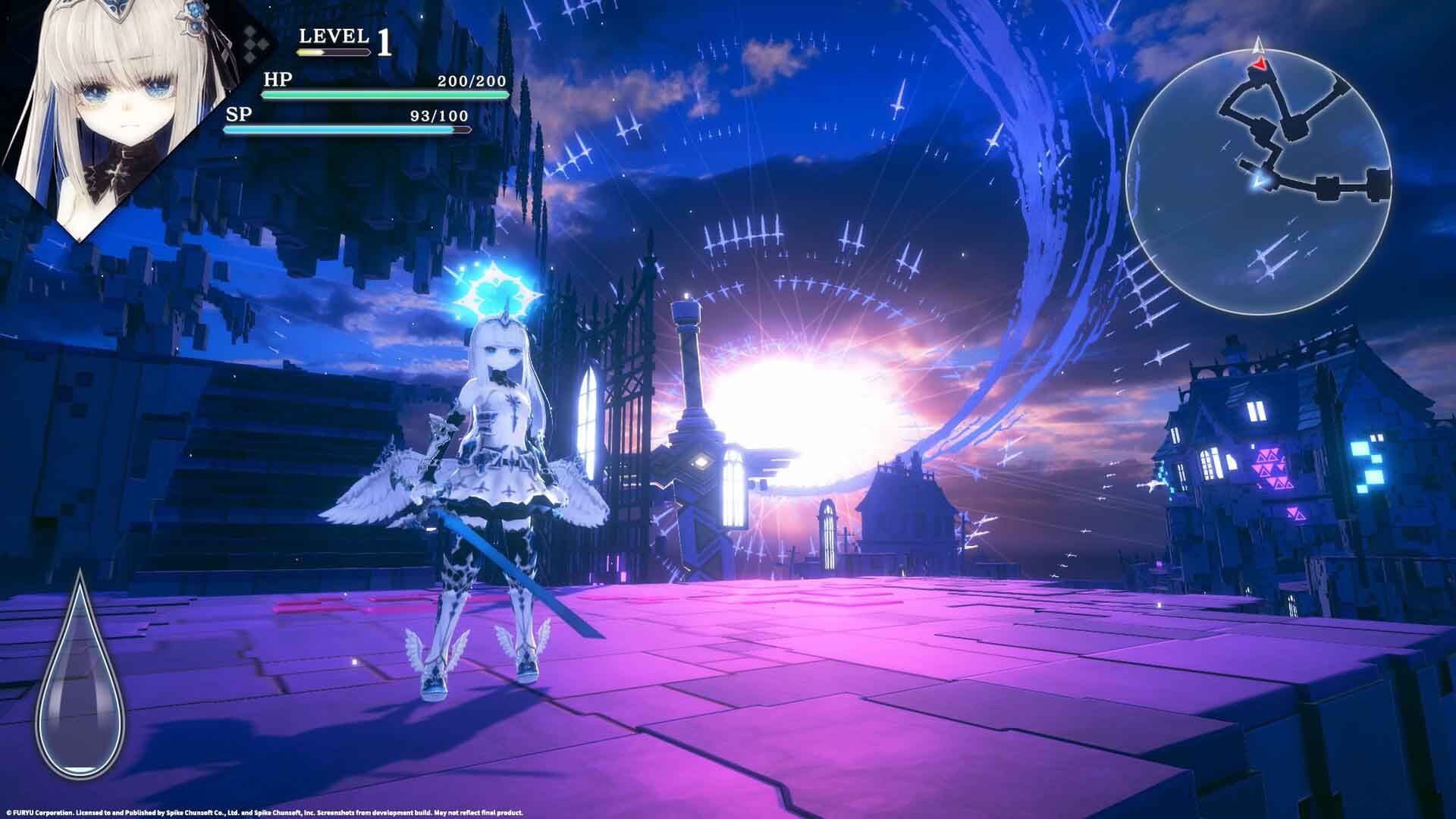
Crystar is in a class of its own compared to any other game I’ve ever played. The most wonderful part is that it can help people. Those who are feeling sad, feeling lonely, feeling broken can empathize and relate to Rei’s quest to hold Mirai’s hand at least one more time. And that’s something that not many other games can say.
- Induces Catharsis
- Endless references to philosophy and mythology
- Incredible localization and music
- A little repetitive
